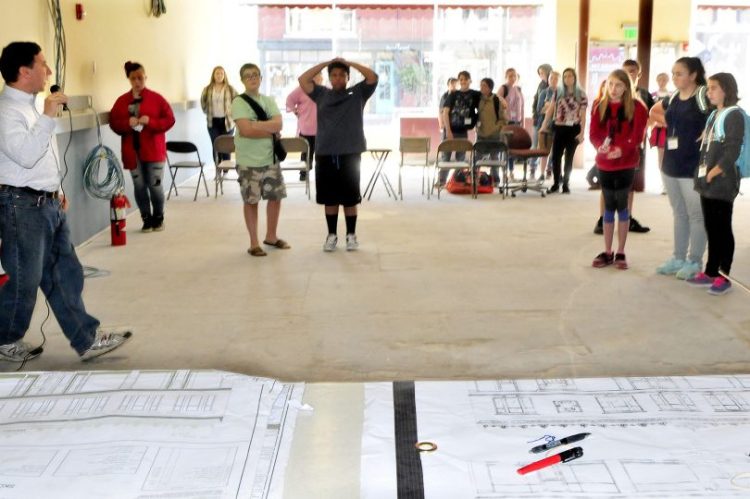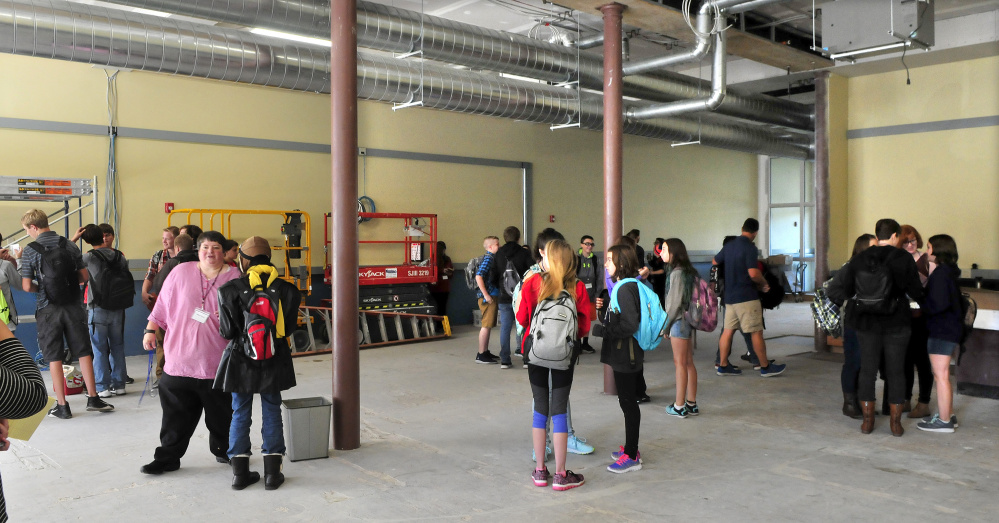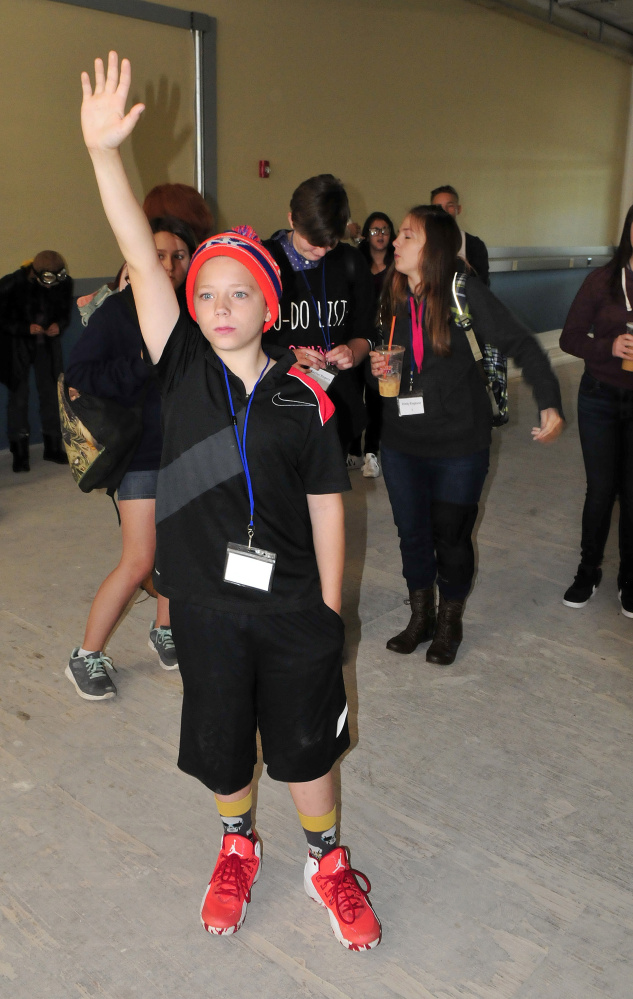SKOWHEGAN — Students arrived at an empty building on Water Street Monday morning to sign in with teachers before being welcomed by engineer Steve Govoni, who is leading the renovation of their new school.
The new extension to the Cornville Regional Charter School occupies space that formerly housed Variety Drug, serves as a high school annex for the charter school based on West Ridge Road in Cornville and should be ready for students in seventh, eighth and ninth grades in a few weeks. Delays in permit approvals held up closing on the building, which pushed back the time contractors could work on the school.
While the new extension is not yet finished, Govoni said the construction process is going well.
Most schools take about three years to finish, according to Govoni, who works for Wentworth Partners & Associates Inc.
In the meantime, students will complete activities in the immediate area and use the Skowhegan Community Center as a classroom if necessary. They will also learn about the design process and provide input to Govoni and the contractors working on the project, BNF Building Contractors of Moscow, about what they want their learning spaces to look like.
Crystal Priest, the teaching principal and technology director of the Skowhegan campus, said she has been working in education for 28 years, but hasn’t been “this excited for the first day of school in a long time.”
After coming together Monday, students headed to the community center to brainstorm ideas and learn about the design process.
Bob Kautz, executive director of the Maine Charter School Commission, said this was part of the school’s contingency plan.
“We’re very pleased with what they have got planned,” Kautz said, as students will get to learn about the area and play a role in the design process. “It’s going to be a kind of exciting hands-on learning experience. It will give them a sense of ownership in their own school.”
The commission has seen similar delays with other charter schools, Kautz said, such as the renovations at Baxter Academy in Portland.
Kautz said they met with school officials last week and saw that “a lot of progress” was made in the construction.
“We are confident that it will be successful,” he said.
Laurie Pendleton, chair of the Charter School Commission, said they expect to get a report on the construction and delay at the commission’s next meeting, which is Sept. 5 at 9:30 a.m. A review team has been monitoring the school’s progress, which is regular procedure, and will update the commission at the meeting, she said.
Pendleton declined to comment specifically on the delay until she receives the report.
Priest said the school won’t face penalties for the delay, only “a little bit of inconvenience.”
Teachers, who are called learning facilitators at the charter school, said the delay isn’t changing their original lesson plans for the students.
“If it was a big deal, I’d be the first one shouting about it,” said Kirby Reardon, a learning facilitator.
Elizabeth Firnkes, also a learning facilitator, said she planned to send students out into the community much of the first few weeks anyway. Many students aren’t from the area, so they’ll be completing activities in Skowhegan’s downtown and eating lunch locally to get comfortable in their surroundings.
For example, this week they will complete an activity called “the amazing race.” They will use a digital application to get hints about 10 locations to visit around the downtown Skowhegan area, where they will meet business owners. Volunteers will help the learning facilitators make sure the students stay safe as they move around, Firnkes said, as safety in the high-traffic area has been a concern.
Students will also get the chance to build the policies and framework of the school, Reardon said.
First, he said, they will go over basic civics and the framework of the U.S. government, as well as the framework established by school administrators. Then students will be able to present changes to the policies to the school board and brainstorm ideas for the school’s name, motto, logo and colors. They will also set up their student government.
The idea is to get them “engaged in the democratic process,” Reardon said, though they won’t have the power to run the school.
“Ultimately, even though we’re going to be trying to run a republic, it’s going to be an oligarchy,” he said.
The first floor of the building should be open in two weeks, and other renovations, like an elevator, will be done in phases over a five-year period. Students will remain on the first floor this year, using folding glass walls to create different classroom spaces.
“It’s a huge building, and it’s a lot of work to get to where we are right now,” Govoni said. The old building had issues like gas pipes and lead pipes that needed to be fixed, as well as beams that weren’t actually attached to the columns holding them up.
Govoni said he began working on the project last August. The state commission approved the extension in December, and they received the local zoning permits in February. The conditions of the sale were based on those approvals, Govoni said, so the closing didn’t happen until the end of April, delaying construction.
“The closing is what really killed us,” he said.
In total, 10 weeks of construction time were lost, but the contractor was able to gain about two months back.
Madeline St. Amour — 861-9239
mstamour@centralmaine.com
Twitter: @madelinestamour
Send questions/comments to the editors.







Comments are no longer available on this story